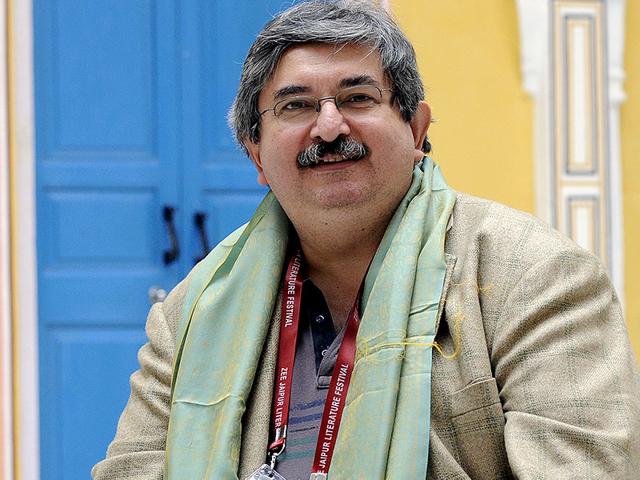Indian army's behaviour during the 1971 war was extraordinary: Salil Tripathi
During the Bangladesh war of 1971, when journalist Salil Tripathi was a young boy, he remembers pasting black paper on the windows of his house in Mumbai in an attempt to ward off any possible attack. The author spoke to HT about the significance of the 1971 war and the Shahbag movement of 2013.
During the Bangladesh war of 1971, when journalist Salil Tripathi was a young boy, he remembers pasting black paper on the windows of his house in Mumbai in an attempt to ward off any possible attack.

Years later in the 1980s, as a 24-year-old reporter in Dhaka, he met Syed Faruque Rahman, a military officer was one of the brains behind the execution of Sheikh Mujibur Rahman-the first President of Bangladesh.
Tripathi found the military officer, who was finally tried and executed in 2010, to be unrepentant about the assassination, and from that carved out the title of his recently released book 'The Colonel Who Would Not Repent - The Bangladesh War and its Unquiet Legacy'.
Salil Tripathi spoke to HT about the significance of the 1971 war, Bangladesh's identity and the Shahbag movement of 2013. Here are the excerpts:
Why do you think the 1971 Bangladesh war so important?
Firstly, it's important for the younger generations to know about the 1971 war because it's the example of something exemplary which India has done in terms of its foreign policy.
It was something on which India acted under a moral impulse and took a strong stand to protect innocent lives. The situation was thrust upon Indira Gandhi and she played her cards really well.
Secondly, the way in which the Indian army behaved during 1971 war is something extraordinary especially when they are criticised so much due to the Armed Forces Special Powers Act (AFSPA) in Kashmir and the Northeast. I was asked by my editors to look into any atrocities by the Indian armed forces during the war, but I found none.
On the question of Bangladesh as a nation, its identity is quite interesting to follow. It's a place where the idea of a 'religious nationalism' didn't work, killing lakhs of people in the process.
That's the central question about this nation. It started out as Muslim nation which wanted to be a part of Pakistan. But then, that fell apart within a short time. They wanted a better status of the Bengali culture and language. They wanted to recite Tagore and celebrate Polia Baishakh. They were stopped from doing that and they revolted which resulted in the political movement of Awami League. And when the League was stopped from forming the government after coming to power, everything changed.
How has the 1971 war influenced the narrative of South Asian politics?
I think the war set off the question of existential identity in Pakistan, as Tariq Ali titled his book, "Can Pakistan survive'. The idea of a country on the basis of religious contiguity was challenged. On the other hand, for India the eastern front was no longer a threat and for Bangladesh, India became a very foil to play against China.
Tell us something about your experience of meeting the military officer Faruque Rahman, on whom the title of your book is based.
When I met Faruque in 1986 on my first trip to Dhaka as a reporter, he was living in one of the poshest part of Dhaka with security cover. You would imagine the killer of a state to be some sort of a fugitive, but he was not. He was extremely confident about himself and told me he was proud of what he has done because it was good for the country.
You know I was a kid at that time, so I was very cautiously putting it to him saying that 'I have read reports…' He cut me mid-sentence and said, "Of course, I killed him. We had to. He had got in the way of the system."
When I met him in '86 I had no idea that one day, about 30 years later, I would write a book about him. But his execution in 2010 brought back the memories.
What is the lesson to be learnt from the 1971 war for India?
Bangladesh is trying to be what India was until the last election and India is trying to be what Pakistan might become in terms of an overtly religious identity.
You were present in Bangladesh at the time of the Shahbag movement. How do you see the movement and the eventual hanging of the Islamist leader Abdul Quader Molla?
The Shahbag movement was the manifestation of the feeling of a section of Bangladeshis that justice was not meted out by Molla's life imprisonment. They wanted him to be hanged.
When Molla flashed the V-sign after his life imprisonment, many Bangladeshis felt insulted, and that eventually led to the Shahbag movement.
On one hand I'm against capital punishment, but then, I'm against impunity also. If you are guilty of genocide or heinous rapes or forcing people into slavery then you must face justice. Many people claim that Shahbag was a movement by the atheists against believers. But in Shahbag I saw that the protestors were believers too, who wanted justice against heinous crimes.
What about the Shahbag movement in the Indian context?
There are people in this country who have written and worked extensively to bring to book the culprits of 1984 and 2002 riots. But we have this notion of constantly talking about 'moving ahead'. The point is, who are we, those who were not affected by the violence, to decide that we should move on. Let them, who have lost family members in these riots, tell us whether to move on or not. The agency is theirs not ours.





